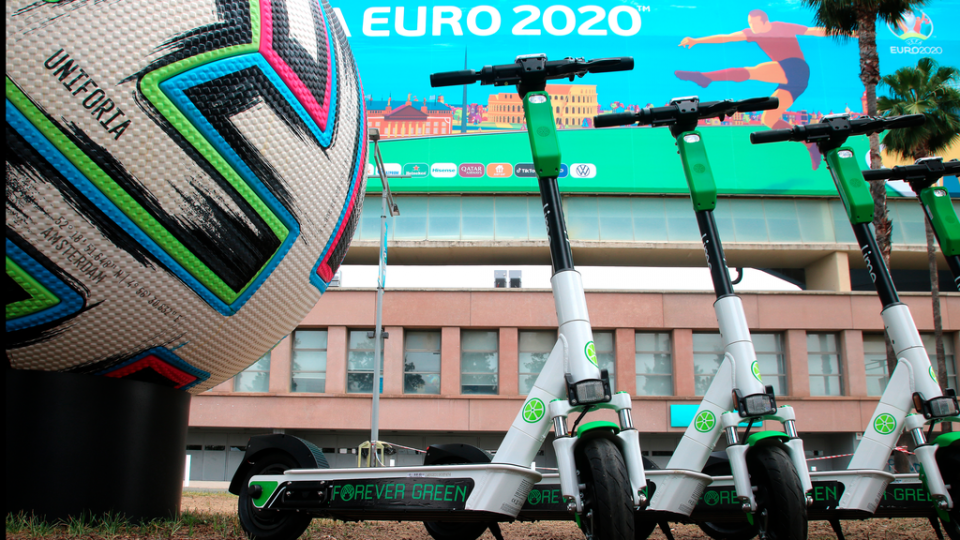
EURO 2020 took place in 11 host cities across Europe. One of the standout features of the event was its commitment to environmental sustainability, with a strong focus on reducing the carbon footprint of travel. Recognizing transportation as a significant contributor, UEFA launched innovative initiatives to promote eco-friendly travel options for fans and participants.
Objectives:
- To significantly reduce the carbon emissions
- To promote public transportation, bicycles, and other sustainable transport options
- To inspire host cities to adopt long-term sustainable transportation policies
- To raise awareness of eco-friendly travel’s role in reducing environmental impact
Description of the Practice:
Cities hosting EURO 2020 implemented various sustainable transportation initiatives to minimize environmental impact. Amsterdam, Copenhagen, and Munich offered free public transport to ticket holders on match days, reducing car use and congestion. Copenhagen, already known for its cycling culture, expanded bike parking and encouraged cycling to stadiums, cutting emissions from short-distance travel. London and Glasgow deployed electric and hybrid buses to shuttle vans, media, and VIPs while increasing the availability of EV charging stations. To address the high carbon impact of international travel, fans were encouraged to participate in carbon offset programs supporting renewable energy and reforestation projects. Additionally, walking paths and green transport apps provided real-time information on sustainable travel options, promoting eco-friendly mobility.
Impact and Results:
UEFA estimated that the use of public transportation by fans and staff during the tournament prevented thousands of tons of CO2 emissions, contributing significantly to carbon reduction efforts. Many host cities experienced a noticeable increase in public transport ridership on match days, highlighting the effectiveness of offering free and accessible transportation options. What’s more, the tournament left a lasting legacy in several cities, with long-term improvements to public transport systems, such as the installation of new EV charging stations and enhancements to cycling lanes.
Challenges and Solutions:
One challenge faced by EURO 2020 was the high volume of international travel due to the multi-host format. In response, the tournament prioritized infrastructure improvements in each host city to reduce local emissions. Another challenge was ensuring that fans took full advantage of the public transport options available. To address this, awareness campaigns ensured fans maximized free transport services.
Can it be repeated?:
The successful integration of sustainable transportation strategies across various cities, each with different infrastructures, shows that these practices can be adapted to local contexts. Free public transportation for ticket holders, increased cycling infrastructure, and carbon offset programs are all scalable strategies that can be implemented for future sporting events worldwide.
Conclusion:
EURO 2020 demonstrated how eco-friendly transport solutions can significantly reduce emissions while enhancing fan experiences. By offering fans and teams free public transport, encouraging cycling, and using electric vehicles, UEFA and the host cities managed to reduce carbon emissions while maintaining efficient and enjoyable travel for attendees.
Recommendations:
- Offer free or discounted public transport to incentivize eco-friendly travel
- Collaborate with local governments to enhance cycling infrastructure and promote walking routes
- Expand awareness and participation in carbon offset programs
- Incorporate green transport apps for real-time eco-travel information
 .
. 
